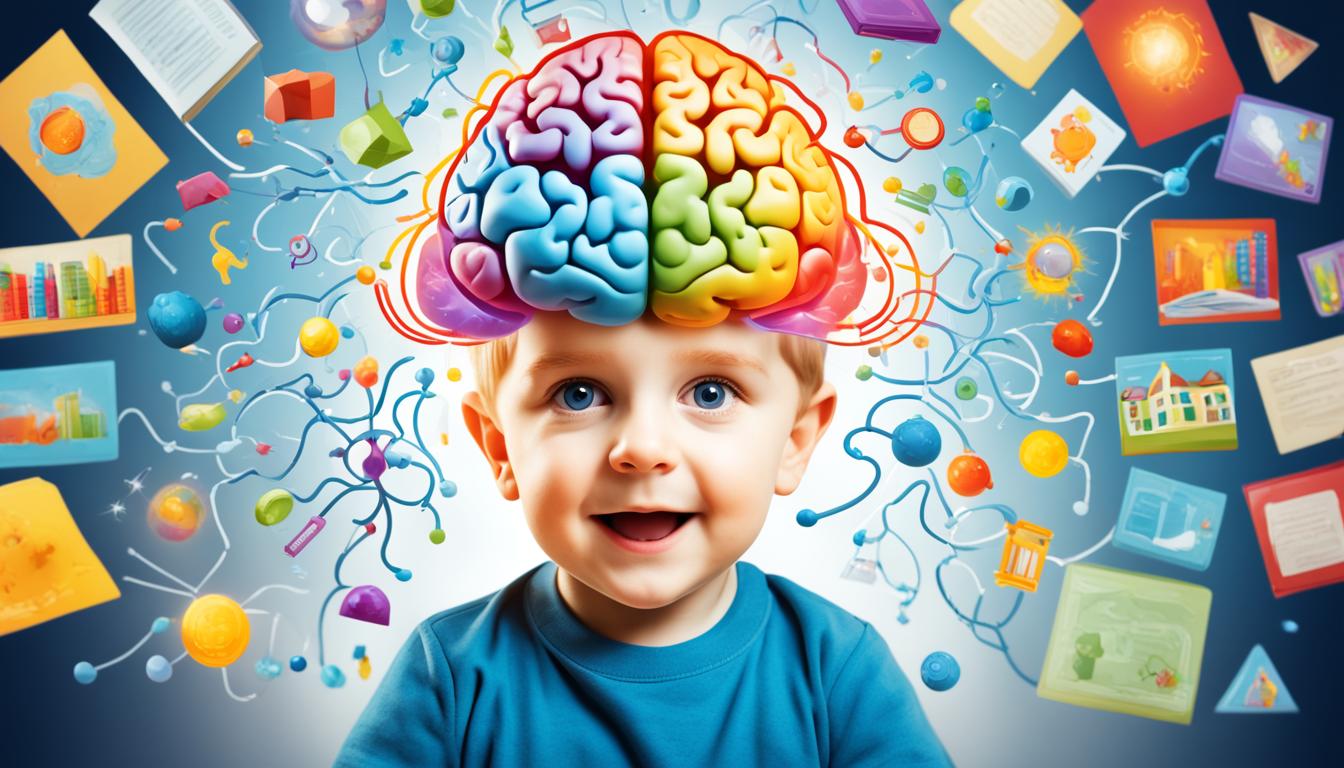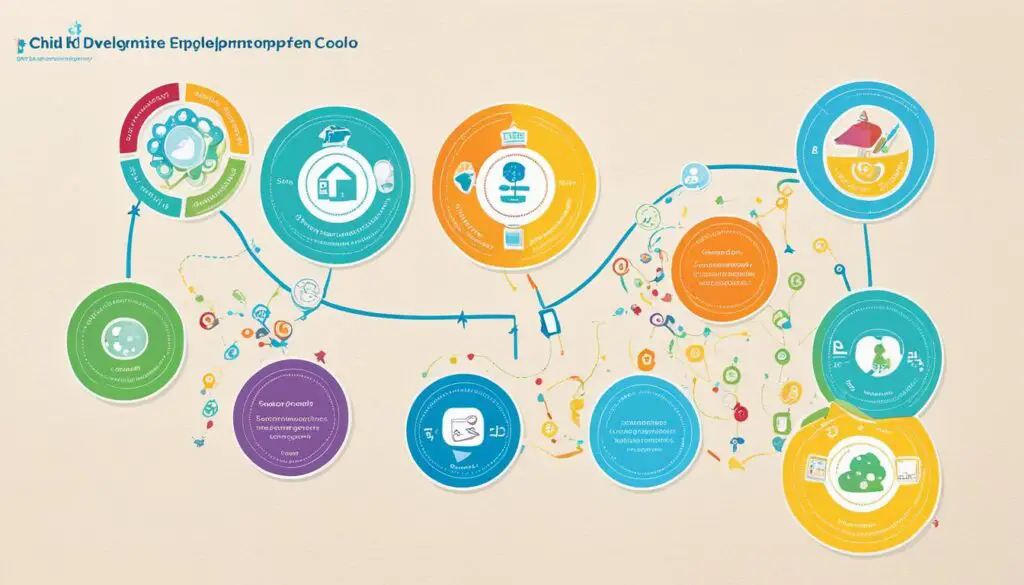
Insights into Child Cognitive Development: From Theory to Practice
Child cognitive development is a fascinating area of study that explores how children’s minds grow and develop. As a parent or educator, understanding the theories behind cognitive development can provide valuable insights into how to support and enhance a child’s intellectual abilities. This article will delve into the theories of child cognitive development and explore practical strategies that can be implemented to promote optimal growth.
When it comes to understanding child cognitive development, theories provide a framework for explaining the complex processes that occur within a child’s mind. These theories are developed by renowned psychologists who have dedicated their careers to unraveling the mysteries of cognitive growth.
By gaining insights into these theories, we can gain a deeper understanding of how children acquire knowledge, process information, and develop problem-solving skills. Armed with this knowledge, we can then translate these theories into practical applications that can be integrated into everyday life and educational settings.
From creating stimulating environments to engaging children in interactive activities, the strategies we adopt play a crucial role in supporting cognitive development. Whether it’s encouraging critical thinking through puzzles and brainteasers or fostering creativity through imaginative play, there are numerous ways to empower children and nurture their cognitive abilities.
Join me on this enlightening journey as we explore the fascinating world of child cognitive development and discover practical strategies to help children reach their full cognitive potential.
Key Takeaways:
- Understanding the theories behind child cognitive development is essential for parents and educators.
- Practical strategies, such as engaging children in problem-solving tasks and encouraging imaginative play, can support cognitive growth.
- Providing stimulating environments and utilizing educational resources can enhance a child’s cognitive abilities.
- Jean Piaget and Lev Vygotsky are prominent psychologists known for their influential theories on cognitive development.
- By implementing theory into practice, we can actively support a child’s cognitive development journey.
Key Stages of Child Cognitive Development
Child cognitive development is a fascinating field that has been explored by renowned psychologists such as Jean Piaget and Lev Vygotsky. Their theories have shed light on the different stages of cognitive development that children go through, providing valuable insights for parents and educators.
Piaget’s Theory:
Piaget’s theory proposes that cognitive development occurs in distinct stages, each characterized by specific cognitive abilities and behaviors. These stages are:
- Sensorimotor Stage: This stage spans from birth to about 2 years old. Infants develop their understanding of the world through sensory experiences and actions.
- Preoperational Stage: Lasting from around 2 to 7 years old, this stage is marked by the development of symbolic thought, egocentrism, and the use of language.
- Concrete Operational Stage: Occurring between the ages of 7 and 11, children begin to think more logically and understand concrete concepts, such as conservation and logical operations.
- Formal Operational Stage: This stage, which starts around age 11 and continues into adulthood, involves the development of abstract thinking, hypothetical reasoning, and the ability to think about possibilities.
Vygotsky’s Sociocultural Theory:
Vygotsky’s sociocultural theory emphasizes the role of social interactions and cultural influences in cognitive development. According to Vygotsky, children’s cognitive development is guided by their interactions with more knowledgeable individuals, such as parents, teachers, and peers. Language plays a crucial role in this process as children internalize the knowledge and skills shared by others, leading to higher cognitive functioning.
Understanding these key stages of cognitive development, as proposed by Piaget and Vygotsky, can empower parents and educators to provide appropriate support and stimulation to enhance a child’s cognitive growth. By tailoring educational activities and experiences to each stage, we can optimize a child’s learning journey and foster their intellectual development.

| Stage | Description |
|---|---|
| Sensorimotor | Birth to about 2 years old. Development through sensory experiences and actions. |
| Preoperational | Around 2 to 7 years old. Symbolic thought, egocentrism, and language development. |
| Concrete Operational | Ages 7 to 11. Logical thinking and understanding of concrete concepts. |
| Formal Operational | From age 11 into adulthood. Abstract thinking and hypothetical reasoning. |
Strategies to Boost Child Cognitive Development
When it comes to promoting child cognitive development, there are several effective strategies and activities that parents and educators can implement. These strategies can play a key role in enhancing a child’s cognitive abilities, problem-solving skills, and overall cognitive development.
Engaging in Problem-Solving Tasks
Engaging children in problem-solving tasks, such as puzzles and brainteasers, can significantly enhance their critical thinking skills. By challenging their minds and encouraging them to find solutions, children develop their problem-solving abilities, logic, and reasoning.
Encouraging Imaginative Play
Imaginative play not only sparks creativity but also nurtures cognitive flexibility. When children engage in pretend play, they learn to think creatively, adapt to different situations, and explore various perspectives. This type of play allows children to develop essential cognitive skills while having fun.
Reading and Conversations
Reading to children and engaging in conversations with them have a profound impact on their language and cognitive abilities. By exposing children to a variety of vocabulary, concepts, and ideas, reading helps expand their knowledge and understanding. Conversations, on the other hand, stimulate critical thinking, improve communication skills, and enhance cognitive development.
Hands-On Learning Experiences and Educational Resources
Hands-on learning experiences, such as science experiments, art activities, or building projects, provide children with opportunities to apply their problem-solving and critical thinking skills in real-world situations. Additionally, using educational resources, such as educational apps or interactive learning materials, can further support cognitive development by engaging children in interactive and stimulating activities.
By implementing these strategies in daily routines and educational settings, parents and educators can effectively boost a child’s cognitive development. These activities not only provide opportunities for learning and growth but also make the journey of cognitive development enjoyable and engaging for children.

| Strategies | Benefits |
|---|---|
| Engaging in problem-solving tasks | Enhances critical thinking skills |
| Encouraging imaginative play | Fosters creativity and cognitive flexibility |
| Reading and conversations | Improves language and cognitive abilities |
| Hands-on learning experiences and educational resources | Supports cognitive development through real-world application |
Conclusion
Child cognitive development is a critical aspect of a child’s overall growth and learning. As parents and educators, it is essential to gain insights into theories such as Piaget’s and Vygotsky’s, as they provide valuable frameworks for understanding how children develop intellectually. By implementing practical strategies and activities, we can actively support and promote a child’s cognitive growth.
One effective approach is to engage children in problem-solving activities and hands-on learning experiences. These activities help develop their critical thinking skills and enhance their ability to solve complex problems. Additionally, encouraging imaginative play fosters creativity and cognitive flexibility, allowing children to explore and expand their cognitive abilities.
Another important aspect of cognitive development is language and communication. Reading to children and engaging in conversations not only improves their language skills but also enhances their cognitive abilities. These activities provide opportunities for children to think critically, express their thoughts, and expand their vocabulary.
By incorporating these practical tips into our daily routines and educational settings, we can optimize the cognitive development journey for children, providing them with a solid foundation for lifelong learning and success.
FAQ
What is child cognitive development?
Child cognitive development refers to the growth and progression of a child’s thinking, problem-solving, and reasoning abilities as they mature and experience the world.
Who are Jean Piaget and Lev Vygotsky?
Jean Piaget and Lev Vygotsky are renowned psychologists who have proposed influential theories on child cognitive development. Piaget’s theory emphasizes distinct stages of cognitive development, while Vygotsky’s sociocultural theory highlights the role of social interactions and cultural influences.
What are the key stages of child cognitive development?
The key stages of child cognitive development include the sensorimotor stage, preoperational stage, concrete operational stage, and formal operational stage, as proposed by Jean Piaget.
How can I support my child’s cognitive development?
There are various strategies and activities that can promote child cognitive development. Engaging children in problem-solving tasks, encouraging imaginative play, reading to them, providing hands-on learning experiences, and utilizing educational resources are effective ways to support cognitive growth.
Why is child cognitive development important?
Child cognitive development plays a crucial role in shaping a child’s intellectual abilities and overall development. Understanding cognitive development theories and implementing practical strategies can provide a strong foundation for lifelong learning and success.